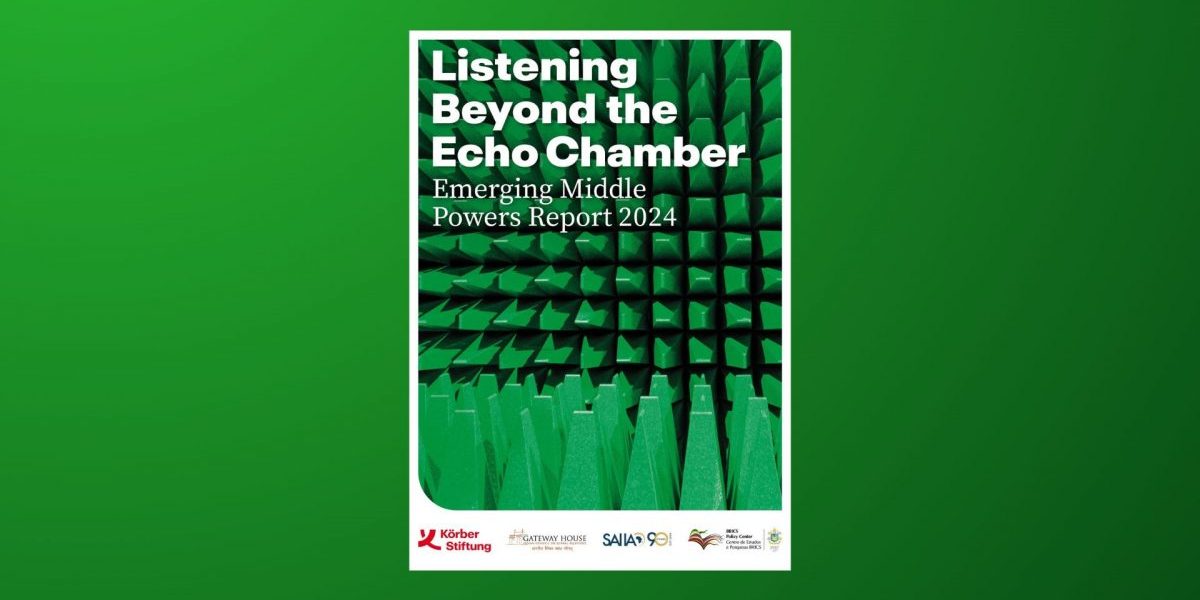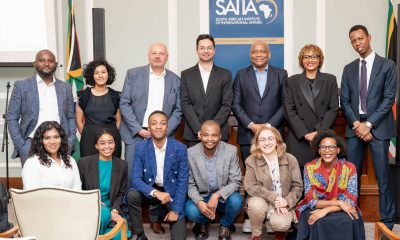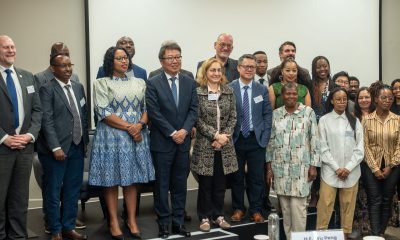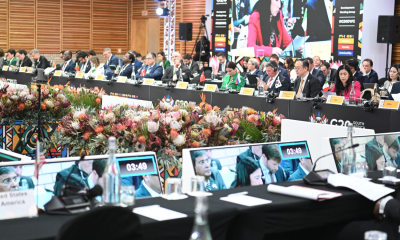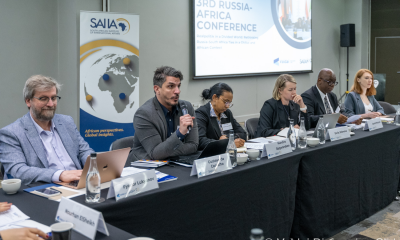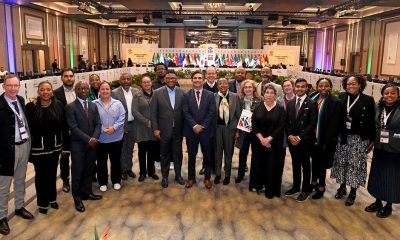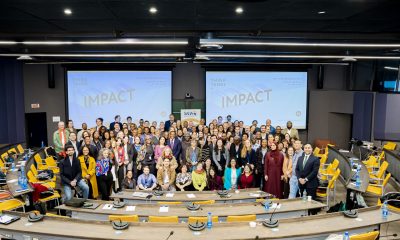Decision-makers from Brazil, India, South Africa and Germany have fundamentally different views on the challenges facing foreign policy. In South Africa, balancing relations between the major powers (21% of responses) is seen as the major foreign policy challenge, while 30% of German respondents consider the war in Ukraine to be the most significant foreign policy challenge. Almost one in two respondents in India (49%) say that relations with China are particularly challenging. In Brazil, climate change (38%) tops the list.
These are among the findings of Körber-Stiftung’s “Emerging Middle Powers Report 2024” survey, conducted by the Verian opinion research institute in October and November 2023 with almost 1,000 experts in Brazil, India, South Africa and Germany.
Making a difference?
In India, as many as 37% of respondents consider their country to be influential in international decision-making processes, while in Brazil, that number was 24%. Germany, on the other hand, was rated as influential by only 21% of German respondents. In South Africa, only 19% of country respondents stated that their country has an influence on international decision-making processes.
Among South African experts, ratings of South Africa’s foreign policy varied. Just 12% of South African respondents felt that government’s handling of foreign policy over the last year was very positive, with 35% saying it was “somewhat positive.” 31% said it was “somewhat negative” and 21% characterised it as “very negative.”
“This shows a stark split in perceptions, with more than half of respondents rating government negatively on its foreign policy performance over the last year,” said Steven Gruzd, an analyst at the South African Institute of International Affairs (SAIIA), one of the project partners on the survey.
Little support for Russia
On average, only four percent of the experts from India, Brazil and South Africa (IBSA) are in favour of supporting Russia in the war against Ukraine. Instead, the majority of IBSA respondents would like their country to take on a neutral mediating role (60% on average). In Germany, only 9% are in favour of their country playing a mediating role.
A clear majority from Germany (89%) and one in four from South Africa (27%) are in favour of supporting Ukraine. In contrast, the South African government has taken a much more neutral stance (and is often accused of supporting Russia). President Cyril Ramaphosa recently called on both sides, Russia and Ukraine, to de-escalate.
Divided opinion on China
Opinions on China’s influence vary widely in the countries surveyed. While the majority of respondents in India (86%) and Germany (90%) view China’s influence negatively, respondents in Brazil (78%) and South Africa (62%) see it positively. In view of the rivalry between the USA and China, respondents in Brazil (82%) and South Africa (79%) prefer a neutral position between the two superpowers. In Germany (80%) and India (59%), the majority of respondents sided with the USA.
Criticism towards the United Nations, hope for the G20 and BRICS
An average of 38% of survey participants from Brazil, India and South Africa believe that the G20 group is best equipped to solve global challenges, while only just under a fifth (18%) say this about the United Nations. A clear majority from the IBSA countries (91%) are in favour of reforming the United Nations by expanding the Security Council. This wish is shared by 78% of German respondents.
While the expansion of the BRICS group by six additional states in 2023 (although Argentina has declined to join under its new government) is viewed positively by the majority of IBSA countries (62% on average), every second respondent in Germany views it negatively (52%). In the IBSA countries, however, only one in two is in favour of another round of expansion.
Desire for technical support from Germany
Experts from the IBSA countries rate their country’s bilateral relations with Germany positively (average score 7.3 out of 10). A large majority believe that a stronger German commitment to research and development (97%) as well as more intensive development cooperation and an improved transfer of technical knowledge (98%) could improve relations between Germany and the emerging economies of the “global South”.
In contrast, 38% of respondents in Germany stated that it would improve relations if Germany were to offer more military support in the future. Only 27% of respondents in India, 21% in South Africa and 11% in Brazil share this view.
The survey
The survey of the “Emerging Middle Powers Report 2024” was commissioned by Körber-Stiftung and conducted by Verian Germany between October 16 and November 29, 2023, based on an online questionnaire. The sample is neither representative nor random. It consists of representatives from government, parliament, the military, the judiciary, diplomacy, journalism, academia, non-governmental organisations, activist organisations and the private sector from Brazil, India, South Africa and Germany. The participants were contacted individually by Körber-Stiftung or its cooperation partners in Brazil (BRICS Policy Center), India (Gateway House Indian Council on Global Relations) and South Africa (South African Institute of International Affairs). To avoid double participation, each link in the online survey was only valid once. The questions were identical in all countries, but were asked in German in Germany, in Portuguese in Brazil, in English in South Africa and in English and Hindi in India.
Körber Emerging Middle Powers (KEMP) Initiative
The KEMP initiative aims to contribute to a better understanding of geopolitical perspectives in countries such as Brazil, India and South Africa through an annual survey and to promote dialogue between Germany and the emerging middle powers.
For media:
- To arrange an interview with Steven Gruzd, Head of African Governance and Diplomacy Program at the South African Institute for International Affairs, please contact media@saiia.org.za.
- For an interview with Nora Müller, Head of International Policy at Körber-Stiftung, or Julia Ganter, Program Manager KEMP Initiative, please contact Ms Inke Horstmann: horstmann@koerber-stiftung.de.

